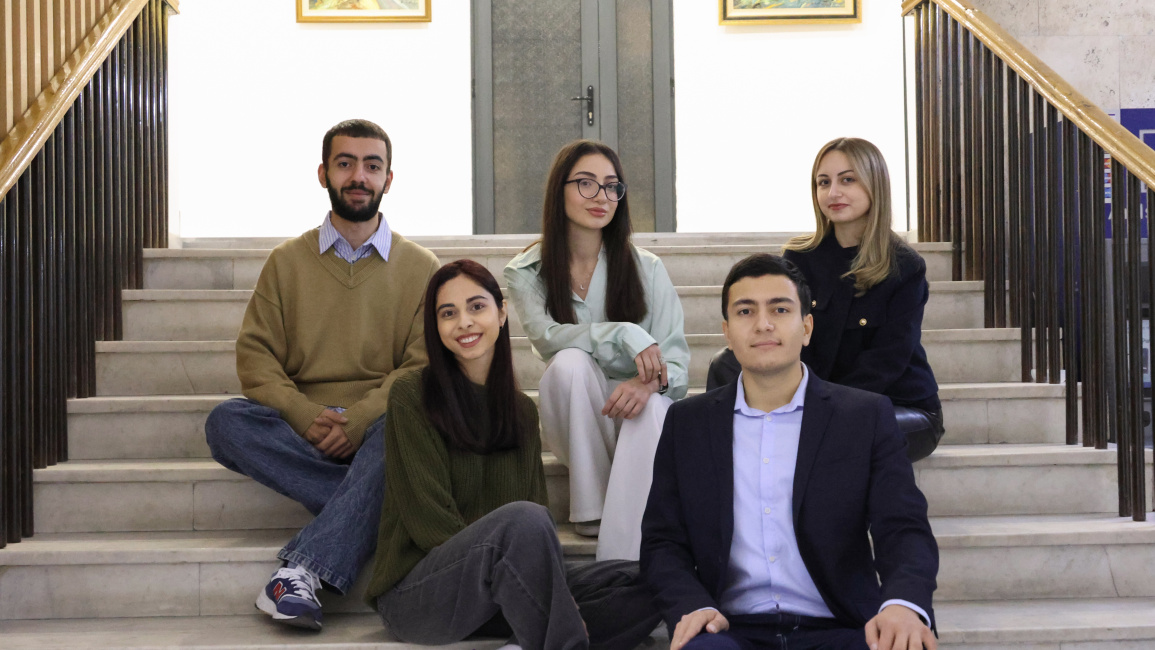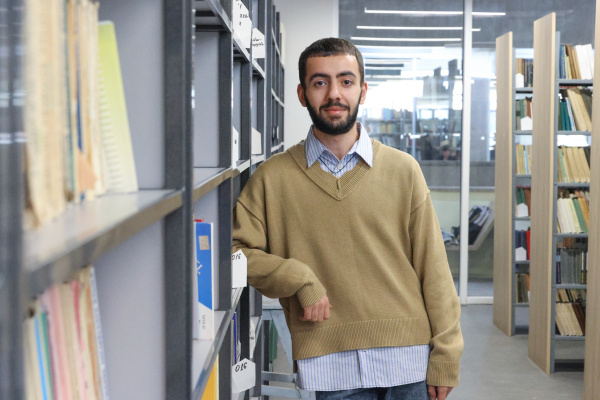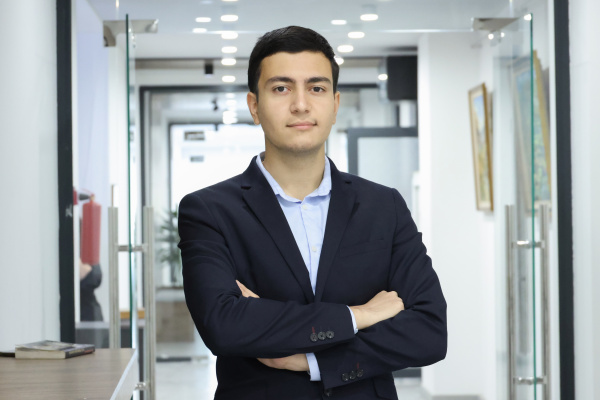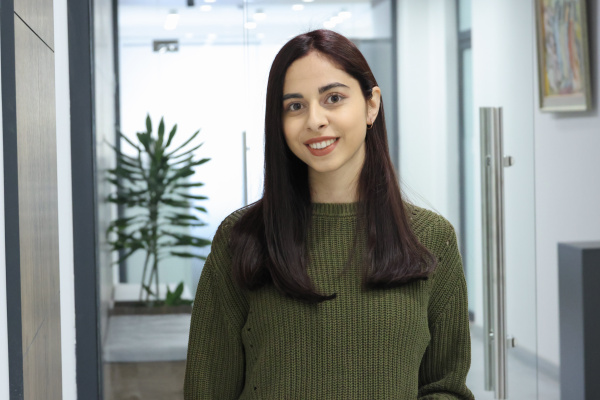November 11, 2024 | 16:32
Educational programs
Education
International cooperation
The key to success is knowledge: YSU students on the opportunity to pursue education abroad
A group of students from YSU Faculty of International Relations took advantage of an opportunity provided by the university to continue their studies at foreign universities. According to them, the new knowledge gained abroad will help them become more competitive professionals and open new horizons for success in the academic and scientific fields.

Razmik Gasparyan, a 4th-year undergraduate student at YSU Faculty of International Relations, continued his studies for one semester at the Faculty of Political Science and Diplomacy at Vytautas Magnus University in Kaunas, Lithuania. During this time, he studied two foreign languages, Chinese and Korean, as well as specialized subjects such as Politics of Small States, Analysis of International Conflicts, and International Relations and Management.

"Lithuania, as a post-Soviet state, is highly developed and advanced in terms of its educational system. At Vytautas Magnus University, the environment was one where everyone had the freedom to express their opinions without concern for others' reactions. The university's staff was always ready to help students. I gained a great deal from the courses I took there, but perhaps the most valuable thing was the friendships and professional connections I made with students and professors from different countries of the world," Razmik said.
He is sure that his experience studying abroad will provide an opportunity to have advantages in the labor market in the future, as well as help in continuing his education.
Hovhannes Shamrikyan, a 3rd-year undergraduate student at the same faculty, continued his studies for one semester at Humboldt University in Berlin. During his time there, he studied political science, economics, and German.

Hovhannes mentioned that at Humboldt University, students had the opportunity to choose their subjects, allowing them to study what was both interesting and relevant to their goals.
"I am convinced that the knowledge I have gained will be valuable in my future professional activities in international relations and political science, allowing me to contribute to my country in some way. I hope that, with the diverse knowledge and professional skills we’ve acquired, we can bring about positive changes in our country. After all, science and knowledge are the keys to success and victory," Hovhannes pointed out.
Diana Shanoyan, a 4th-year undergraduate student at the Faculty of International Relations, studied for over four months at Alexandru Ioan Cuza University of Iasi, Romania. During her time there, she took several courses, including European Union and the Decision-Making Process in the EU, Public Policy, and Nations and Ethnic Minorities.

"At Alexandru Ioan Cuza University of Iasi, we wrote essays and articles on the topics we were studying. This approach allowed us to use a wide range of sources, helping us acquire fundamental knowledge. Personally, I find this method more valuable than traditional composition, as composition often involves reproducing what has already been written, rather than creating something new," emphasized Diana.
She was particularly interested in the course Nations and Ethnic Minorities. Diana has continued to deepen her knowledge in this area and is currently volunteering in refugee work.
"It is very interesting to enrich the knowledge I have acquired through practical experience. I have also developed non-professional, so-called soft skills while abroad. Living on my own, I improved both my household skills and my ability to communicate with people from different nations. Interacting with people from diverse cultures allows one to connect more closely with those cultures and, why not, adopt the best customs accepted in different cultures," stressed Diana.

Lilit Nahapetyan, a 3rd-year undergraduate student at the Faculty of International Relations, had the opportunity to study for five months at the University of Greifswald (Germany), where she took the course English for Political Science C1. She mentioned that in Germany, the focus was primarily on developing critical thinking skills. During classes, discussions and debates were frequently organized, which, according to Lilit, contributed to the development of students' critical thinking.
Svetlana Manukyan, a 4th-year undergraduate student at the Faculty of International Relations, also studied for five months at the University of Greifswald, where she took courses in Public Policy Analysis, Contemporary Theories of Democracy, Alliances and Unions, and Conflicts and Cooperation in the Post-Soviet Area.

According to Svetlana, at the University of Greifswald, the professor did not focus on students' attendance. Speaking about this, she said: "The professor didn’t take attendance; instead, he simply considered the results of the final assignment. As for the exam procedure, we were required to submit research papers, which were evaluated with relatively high standards."
For Svetlana, the professors' direct and friendly communication with students is highly valued. She believes that this makes students feel more comfortable and allows them to learn more from the professor.

